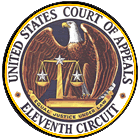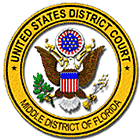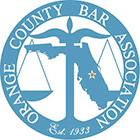
While not exceedingly common, white collar crime is potentially a very large case for all involved. Due to the nature of these crimes, they are investigated by entities far larger than the local Police such as: the FBI, SEC, IRS, United States Treasury, United States Postal Service, or the US Citizenship and Immigration Service. If a representative of one of these branches of the government contacts you, your first inclination should be to speak to a skilled attorney who works with white collar criminal defense. Knowing what the potential crimes are can make a huge difference, as well as tell you if you’re in danger of being contacted by any of those agencies.
Fraud
There are quite a few kinds of fraud that can warrant a white collar crime charge:
- Bank Fraud
- Bankruptcy Fraud
- Credit Card Fraud
- Insurance Fraud
- Mortgage Fraud
In any of these cases, the one unifying factor is that there is an attempt to circumvent paying for certain goods or services by going through illegal channels or methods. This is typically accomplished by making a falsified statement about monetary status, misrepresentation of status at time of incident, or an omission of any pertinent information. Regardless of what form of fraud you’re being charged with, speaking with an experienced attorney should be your first step. With the right consultation, you may have a better idea of the next step.
Forgery and Counterfeiting
Illegally gaming the system with the intent to gain money is the main focus of white collar crimes. Forging a document by signature or other means is one of the most common issues that we’ve seen when it comes to white collar crimes. Similarly, counterfeiting is the presentation of falsified goods with the intent to gain more money. Both of these are the altering, copying, or imitation of something without any legal right to, while also having the intent to pass the copy off as a real entity.
Regardless of the document, it’s the intent of the forgery or counterfeiting that is considered a federal offense, and therefore will be sought out by the right agencies. Contacting a lawyer who is experienced with counterfeiting laws is important during this time, as you want to be sure that your legal rights are being upheld to the best of their ability.
Extortion and Bribery
While there are some fundamental differences between the two, there is a similarity in that they are both used to gain either information or money by illegal means. Extortion is traditionally viewed more negatively, as there is force involved, whether it’s coercion or threats. This can also fall under the realm of blackmail, which is another white collar crime that requires proper representation. The key difference between extortion and bribery is that bribery tends to involve a willing party on some level, as the briber gives something the bribed wants in exchange for something else. If used in the right channels, this is a highly damaging offense that could mean extensive punishments.
These are only a handful of the types of white collar crimes that exist in the State of Florida. Regardless of what your crime falls under, if you’ve been contacted by a government agency regarding a white collar crime, it’s in your best interest to seek out an experienced criminal defense attorney such as Grozinger Law, P.A.







